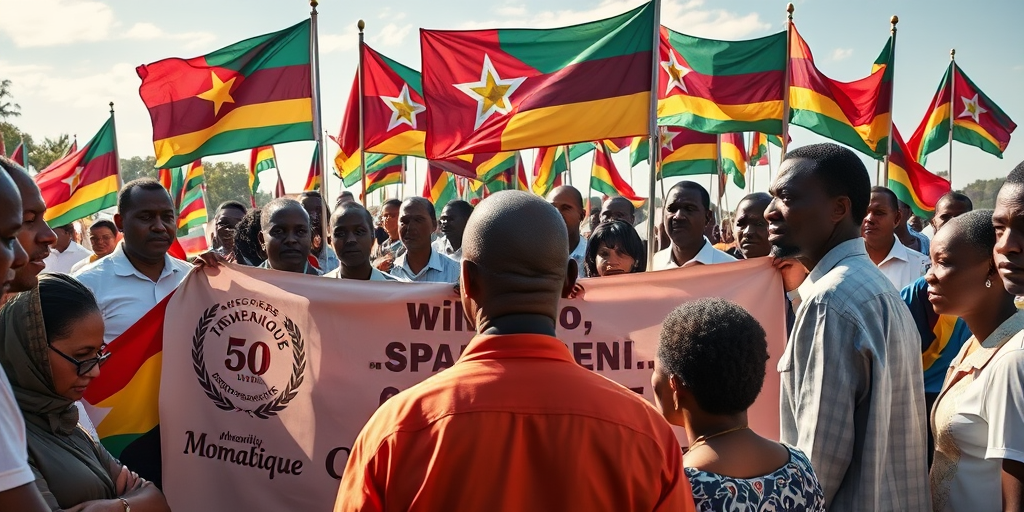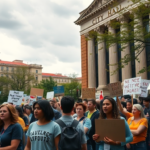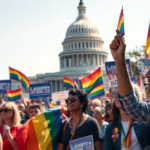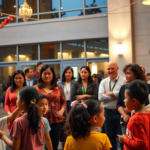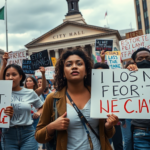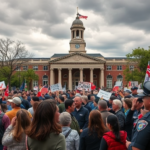Mozambique: Church Proposes National Reforms for Peace, Inclusion, and Good Governance
In a significant move towards fostering national unity and sustainable development, the Catholic Church in Mozambique, through its Episcopal Justice and Peace Commission, has introduced a comprehensive “Political Guide for National Dialogue.” This influential document aims to prepare Mozambican citizens for deeper, inclusive dialogues and proposes sweeping reforms across critical sectors including the state, the electoral system, natural resource management, economic inclusion, and national reconciliation. As Mozambique stands on the brink of significant change, Woke News delves into this landmark proposal and its implications for local communities.
A Blueprint for Reform
The Political Guide for National Dialogue, issued as part of the Jubilee of the Holy Year 2025 and the celebration of Mozambique’s 50th anniversary of independence, advocates for crucial state reforms aimed at strengthening democracy and social justice. Among the proposed changes are reducing the power vested in the President regarding key sovereign appointments and removing the provincial Secretary of State to alleviate pressures on the national budget. This is seen as a direct response to the calls for more equitable governance structures that resonate with community interests across Mozambique.
“The initiative by the Church is timely,” remarks Antonio Mabunda, a political analyst based in Maputo. “It acknowledges the urgent need for decentralizing authority and increasing transparency, which could significantly enhance the credibility of governmental structures.”
Redefining Electoral Processes
Electoral reform is a cornerstone of the guide, seeking to depoliticize electoral bodies and introduce electronic voting to curb fraud and ensure fairness in elections. The aim is to rebuild trust in electoral processes, which has been eroded by past conflicts and allegations of election rigging. By proposing these updates, the Church hopes to bolster voter confidence and encourage higher participation rates, especially among disillusioned youth.
“There can be no democracy without free and fair elections,” states Father Manuel Soares from the Episcopal Justice and Peace Commission. “Our recommendations aim to transform elections into genuine opportunities for the people’s voice to prevail.”
Challenges and Opportunities in Resource Management
Mozambique is a country rich in natural resources, yet many local communities remain impoverished due to mismanagement and lack of transparency. The guide urges the government to classify resources strategically and to distribute revenues justly, particularly to those communities directly impacted by extraction activities. This proposal is designed not only to improve local living standards but also to foster national wealth creation and equity.
“The issue has always been about how the nation’s resources are harnessed and whom they benefit,” notes economic expert Felicia Chivale. “Proper management could lead to transformative economic growth and poverty reduction.”
Strengthening Economic Inclusion
To promote economic inclusion, the guide highlights the importance of policies that empower youth and women, enhance the informal sector, and improve access to vocational education and credit facilities. Addressing economic disparities head-on, these reforms aim to reduce inequality and cement economic stability.
“The Church’s call to action on economic inclusion is vital for sustainable development,” says entrepreneur Maria Joao. “Supporting the informal sector and offering credit accessibility can drive entrepreneurship and employment.”
Nurturing National Reconciliation and Unity
Finally, the guide emphasizes reconciliation, recognizing the scars left by past conflicts. It calls for actions rooted in truth, forgiveness, and a revisitation of dialogue frameworks to ensure they are genuine and effective. This approach is intended to weave a stronger national fabric and eliminate sectarian divisions.
“We must value what unites us more than what divides us,” implores Bishop Carlos Nacua. “Reconciliation is not merely a dialogue—it’s our shared path to peace.”
Engaging the Community
The Church plans to disseminate the guide widely and urges diocesan and parish committees to organize workshops to deepen public involvement. Projections suggest that comprehensive civic participation could be key to realizing these proposed reforms, further cementing their significance within community frameworks.
This initiative from Mozambique’s Catholic Church illustrates a robust commitment to national rebuilding, addressing core aspects of governance and community welfare. As the international community watches closely, the success of these reforms could set a positive precedent for similar movements across Sub-Saharan Africa. Residents and stakeholders eagerly anticipate the tangible changes these proposals might bring, with potential ripple effects felt across all corners of Mozambican society.
For those interested in further information on how to participate in these dialogues or access more resources, the Episcopal Justice and Peace Commission has made various online and in-person avenues available. Contributions from international entities like the Vatican News further enhance public understanding and involvement.
The Church’s vision for Mozambique stands as a testament to collaborative foresight, inviting all Mozambicans to engage actively in constructing a more equitable and peaceful future.

